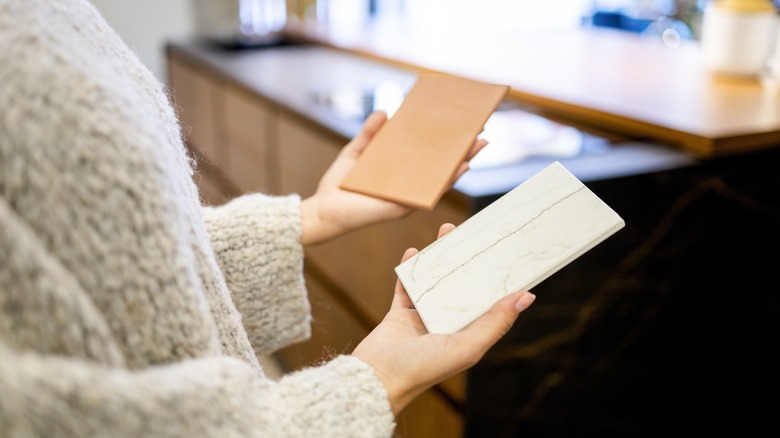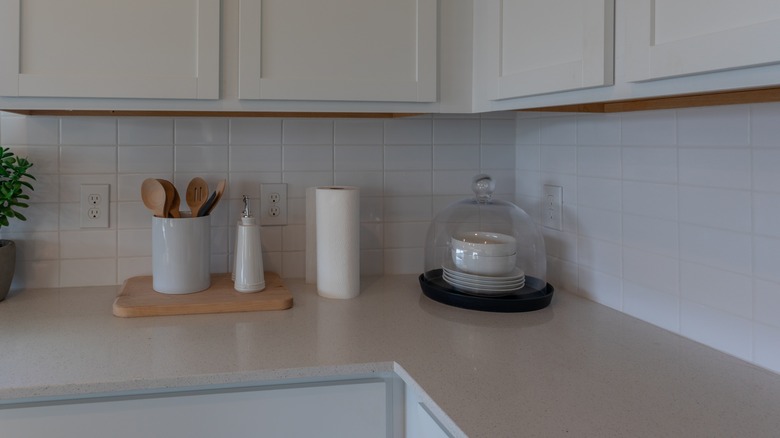The Once-Stylish Countertop Choice You'll Want To Keep Out Of Your Home In 2025
If you're on the hunt for the perfect material for your countertops, chances are you've come across Corian. The non-porous, solid surface features a sleek and seamless design, making it a popular choice for kitchen and bathroom countertops alike. There are plenty of reasons why you may be drawn to Corian, such as its budget-friendly price tag and wide selection of colors that give your kitchen the right vibe. Unfortunately, the once-stylish material has had its day in the sun, and using Corian in your home today can leave it looking severely outdated. Even worse, it's one of those countertop choices that make it hard to sell your home.
Developed in 1967 and made commercially available in 1971, Corian is known for its functional, glossy, and smooth surfaces by interior decorators. It's generally favored for its affordability compared to popular higher-end materials like quartz. However, when it comes to durability, Corian is questionable, as they don't take well to heat and are prone to scratching, especially in their darker shade options. Then there's the fact that Corian is mainly used in industrial spaces, so making the surface blend into a cozy, intimate environment can be a challenge.
Why Corian may not be the best option — and what to choose instead
While Corian is revered for its aesthetics and affordability, it's important to weigh the pros and cons that may outshine what this material has to offer. When it comes to design, granite, marble, and other natural stones are high contenders. Specifically, marble has the sleek, glossy finish that Corian has, but is generally more durable. Not only does marble prove to be a timeless countertop trend that stands the test of time, but it also enhances the value of your home. A similar thing can be said about quartz countertops, since they have an elegant finish that is as visually striking as marble.
Because Corian is on the lower end of the price spectrum, it may show more daily wear and tear compared to other alternatives. For example, this countertop material is prone to scratching, heat damage, and staining. Corian may run between $26 to $65 per square foot, whereas quartz tends to fall between $50 to $200 per square foot. Meaning, while the upfront costs of quartz are more expensive than Corian, quartz is more resistant to scratches, heat damage, and stains, making it a more durable option. Similarly, the cost of marble countertops can range between $40 to $100 per square foot, but they're also prone to scratches and etching, so it's something to consider when weighing the long-term cost.

